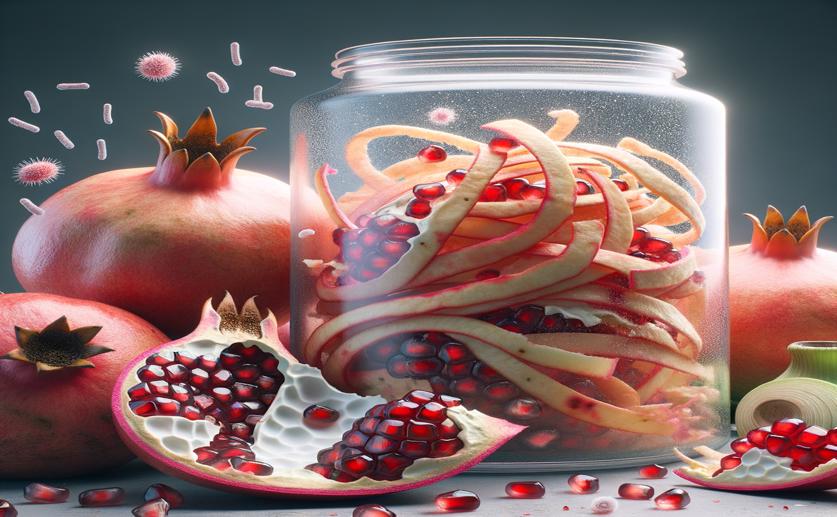
Pomegranate Peel Extract: A Potential Antimicrobial Ingredient from Food Waste
Jenn Hoskins
29th June, 2024

Image Source: Natural Science News, 2024
Key Findings
- Researchers in India found a way to preserve valuable compounds from pomegranate peel using a method called ionic gelation
- This method achieved an 83.65% efficiency in encapsulating the compounds, better than traditional techniques
- The encapsulated compounds showed strong antibacterial activity, suggesting they could replace synthetic antibiotics in food safety
References
Main Study
1) Encapsulated pomegranate peel extract as a potential antimicrobial ingredient from food waste.
Published 28th June, 2024
https://doi.org/10.1002/jsfa.13698
Related Studies
2) Recent advances in extraction technologies for recovery of bioactive compounds derived from fruit and vegetable waste peels: A review.
3) Contamination of bottles used for feeding reconstituted powdered infant formula and implications for public health.
Journal: Perspectives in public health, Issue: Vol 129, Issue 2, Mar 2009
4) Pomegranate peel and peel extracts: chemistry and food features.



 20th May, 2024 | Jenn Hoskins
20th May, 2024 | Jenn Hoskins